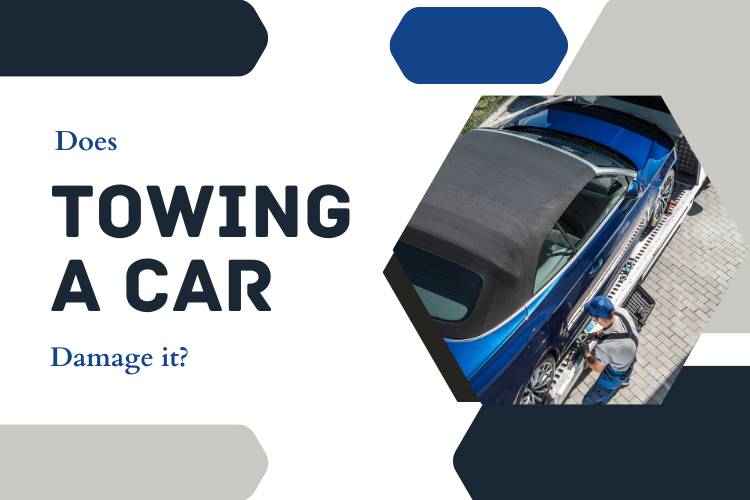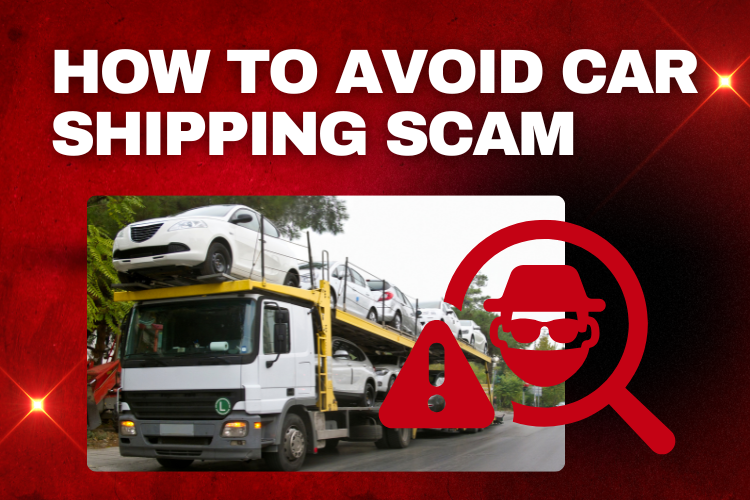Whether you’ve broken down on a busy highway, had a fender-bender in town, or are planning a move across state lines, understanding the costs associated with towing a car is important. It’s essential for your budget and for reducing the stress of an already inconvenient situation.
Towing fees can range significantly based on a variety of factors, such as the distance traveled, the type of vehicle, and the towing company’s pricing structure. On average, a standard tow can cost anywhere from $75 to $125 for a short 10-mile trip, and the rate can increase to $250 or more for longer distances or specialized towing.
In 2015, over 32 million drivers faced roadside breakdowns, with issues like dead batteries, flat tires, and lockouts. AAA also highlights the growing danger to roadside assistance workers, who often risk serious injury or death from passing vehicles while helping stranded motorists. In this guide, we’ll break down towing cosst, explain the key variables that affect pricing and help you explore smarter alternatives, like booking with Sherpa Auto Transport.
Key Takeaways
- Towing a car typically costs between $75 and $250, but rates can increase based on distance and vehicle type.
- Fees often include a base hookup rate and a per-mile charge, especially for long-distance towing.
- Insurance or roadside assistance may cover part or all of the towing cost.
- For distances over 500 miles, auto transport services like Sherpa Auto Transport are much more cost-effective than traditional towing.
In This Guide:
- Overview of Towing Costs
- Average Towing Costs
- Factors that Impact Pricing
- Does Insurance Cover Towing?
- Types of Towing Options
- Can I Tow a Car Long Distance?
- Bottom Line
- Car Towing Cost FAQ
Overview of Towing Costs
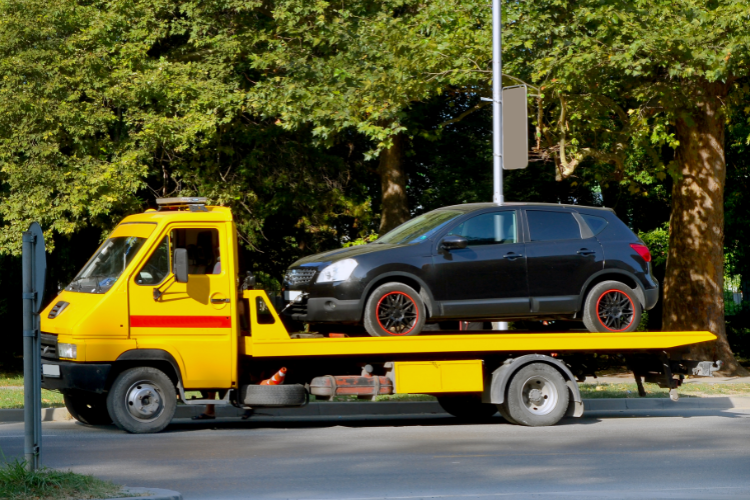
Towing companies typically charge a base fee, often referred to as a “hook-up fee,” which generally ranges from $35 to $100 depending on the provider and your location. After the hook-up, most towing services charge a per-mile rate between $2.5 and $7, which can vary based on factors like local market rates, terrain, and the type of tow truck used. For roadside assistance plans with short-distance towing that are usually less than five miles—you can expect to pay somewhere between $75 and $125.
However, once the tow exceeds 20–50 miles or crosses state lines, costs can easily exceed $500, especially if you’re dealing with emergency service, specialized towing (like for electric or luxury vehicles), or high-traffic urban areas. If you’re facing a long-distance move or need your car transported across states, a towing service may not be the most economical option. In such cases, Sherpa’s vehicle shipping services are a smarter, safer, and often more affordable alternative, particularly when you consider wear and tear on the vehicle and added roadside risks.
Average Towing Costs
Here’s a general breakdown of what you can expect to pay for towing in the U.S.:
- 5 miles or less: $75 – $125
- 10 to 20 miles: $100 – $200
- 100+ miles: $250 – $600 or more
Keep in mind that these are just averages. Actual rates can vary depending on factors like time of day, weather conditions, traffic, and your specific location.
Factors that Impact Pricing
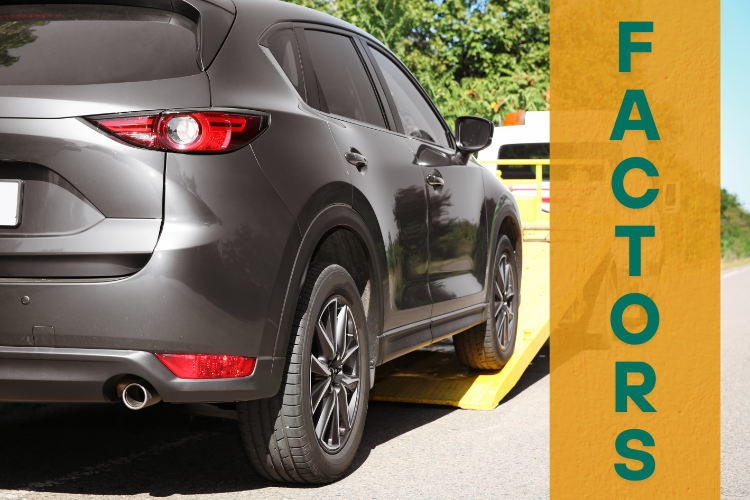
Towing costs aren’t one-size-fits-all. Several variables can cause the price to swing dramatically. Here’s a closer look at what affects how much you’ll actually pay:
Type of Car
The size, weight, and configuration of your vehicle play a major role in towing costs.
- Compact cars are typically the cheapest to tow because they’re lighter and easier to handle.
- Larger vehicles like SUVs, trucks, and vans are heavier and may require special equipment.
- Luxury or low-clearance vehicles often need flatbed towing to avoid damage, which increases the cost.
- Electric vehicles (EVs) may require specialized handling or additional precautions, adding to the total cost.
Type of Tow
The method used to tow your vehicle significantly influences pricing. Here are the most common options:
Flatbed Towing
Offers the safest option by lifting the entire car onto a platform—ideal for long distances or high-value vehicles. It’s more expensive due to the equipment and time involved.
Hook and Chain Towing
An older method that’s less expensive but can damage vehicles—mainly used for junk or totaled cars.
Wheel-Lift Towing
A popular, mid-range option that lifts two wheels off the ground. It’s efficient and cheaper but not recommended for AWD or 4WD vehicles, which can suffer drivetrain damage.
Distance Traveled
Most towing companies charge by the mile after a base “hook-up” fee. For example, a 50-mile tow at $5 per mile can cost $250 just for the mileage, not including the hook-up fee. Many companies include the first few miles in their base price, then charge per mile beyond that (e.g., first 5-7 miles free or included). Long-distance tows can become extremely costly, making services like auto transport a more economical option.
Time of Day
Towing in the middle of the night, on weekends, or during holidays is a convenience that may come at a price. After-hours service fees can range from $25 to $100. Emergency towing during bad weather or high-demand periods may also cost more due to increased labor and safety risks.
Understanding these factors helps you better prepare for the true cost of a tow and might even convince you to explore more budget-friendly solutions like door-to-door auto transport, especially for longer distances.
Does Insurance Cover Towing?

Many insurance policies offer towing coverage, either as part of a comprehensive package or as an add-on.
Roadside Assistance
If you have roadside assistance through your insurer, credit card, or membership (like AAA), you may get towing covered up to a certain distance, usually 5 to 15 miles. Beyond that, you pay out of pocket.
Tip: Check if your insurance offers reimbursement. It could save you hundreds in emergency towing situations.
Types of Towing Options

When your car needs to be moved, the towing method you choose can make a big difference in both cost and safety. Here’s a breakdown of the most common types of car towing, and when each is typically used:
Emergency Roadside Towing
This is the go-to option when your vehicle breaks down unexpectedly, whether due to a mechanical issue, flat tire or accident.
- Best for: Immediate roadside help.
- Cost: Usually higher due to urgency and location.
If you’re stranded far from home, combining this service with longer-term transport may be a smarter financial decision.
Flatbed Transport
Flatbed towing involves loading the entire car onto a platform trailer, keeping all four wheels off the ground.
- Best for: Long-distance towing, all-wheel-drive (AWD) vehicles, electric cars, or luxury vehicles.
- Cost: Higher, but safer and less wear-and-tear on your car.
Flatbed towing is often the preferred method for shipping cars across state lines.
Dolly Towing
A tow dolly lifts only the front two wheels of your car, allowing the rear wheels to roll.
- Best for: Front-wheel-drive cars, short distances.
- Cost: More affordable than flatbed, but not suitable for AWD or rear-wheel-drive cars.
It is important to note that dolly towing can cause drivetrain damage if used incorrectly.
Integrated Towing
Also known as “self-loader towing,” integrated tow trucks are equipped with specialized gear to haul large or heavy-duty vehicles like buses, RVs, or commercial trucks.
- Best for: Heavy-duty towing, law enforcement, or repossession services.
- Cost: Typically the most expensive due to specialized equipment and labor.
If you’re planning to move your vehicle more than a few miles, especially out of town, it might be worth exploring auto transport instead. It’s often more cost-effective and less stressful than traditional towing, particularly for long distances or cross-country moves.
Can I Tow a Car Long Distance?
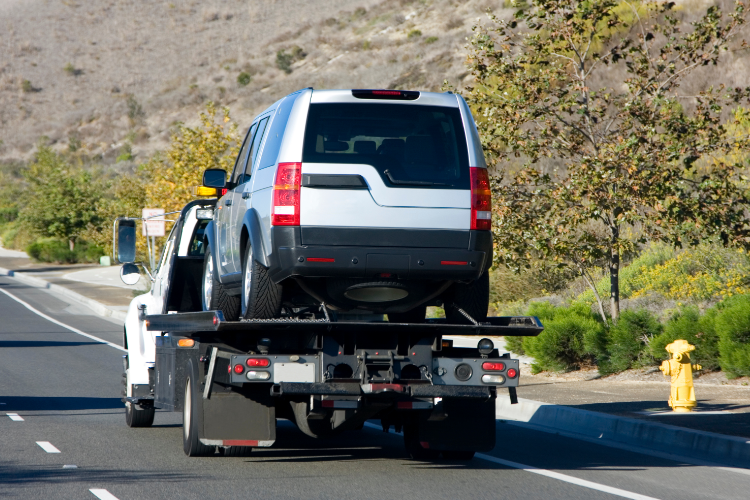
Technically, yes—but it might not be the smartest move. Long-distance towing is expensive, time-consuming, and can add wear and tear to your car. Instead, consider using a professional auto transport service like Sherpa Auto Transport. With Sherpa, your car is shipped securely on a carrier, saving you money, time, and stress. Plus, their Price Lock Promise ensures you won’t get hit with surprise fees.
Bottom Line
The cost to tow a car depends, but even a short trip can add up quickly. Towing rates vary by provider, distance, and time, but average costs range from $75 to $250 or more. If you’re moving long-distance or want to avoid the headaches of roadside towing, Sherpa Auto Transport offers a safer, cost-effective alternative.
Sherpa makes the process smooth from start to finish by helping you navigate costs, setting clear expectations for how long it takes to ship a car and providing a top notch service for you and your vehicle.
Car Towing Cost FAQ
What is the cheapest way to tow a car?
Using roadside assistance or renting a tow dolly is usually the most affordable option for short distances.
Should I tow or ship a car more than 500 miles?
Ship it. Towing over 500 miles is typically more expensive and time-consuming than using an auto transport service.
Does towing damage your car?
If done correctly, towing doesn’t usually damage your vehicle. However, improper towing (like using the wrong method for an AWD vehicle) can cause serious issues.






